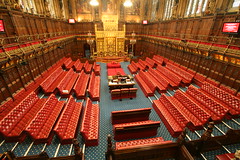The Debono Damocles’ Sword still hangs on the nationalist government notwithstanding all the peace entreaties of the last hours. Lawrence Gonzi must be plucking away at his own version of “loves me – loves me not” petals while rumour has it that the strategy team at Pietà are already hard at work preparing for a tough campaign. So what we have really is speculation about the “when” of an election and the closer we get to the official expiry date of the nationalist mandate the more the “if” becomes superfluous. It’s all well and good for the punters and underground betters who would slip a euro or two on the outcome of Thursday’s confidence vote but if we were to look at the happenings from a wider point of view the importance of this moment is minor. Trivial even.
For the day will come when the election is called – with or without a Franco tantrum – and the nation will shift to election gear without as much as a by-your-leave. That day will mark the first day in the life of Franco the non-entity, relegated to the footnotes of history and the school reports of a Jesuit college. It will also be the end of speculation as to whether an election should take place and this will be replaced by speculation on who will get the most votes. We’ve seen the polls that talk of swings of point advantages and of the presumed underdogs. We are still in the realm of electioneering though – it’s all about tactic. When to call the election, what marketing and spin to push in the run up to gather people’s attention, and then we move into the appearances – the debates, the flaws and the track records.
All well and good. We are after all experts in the field. If Italy is a nation of football coaches, Malta is a nation of election supremos. Everybody knows what it takes to win an election. Or to lose it. What we do seem to be forgetting more and more – as we are all taken up with suppositions, political chess moves and admiration/scorn at the latest politician who makes his move in the arena – what we seem to be forgetting is that politics is about content. You know: the program, the manifesto, the ideas, the management plan, the principles espoused by the candidates. Yep those. Because whether Franco caves in on Thursday or whether we will have an election close to the next budget makes no difference. Theoretically we need to be voting on content.
And my friends, lend me your ears – I’ll repay you with interest – of content there does not seem to be much. Gatt, Cachia Caruana and lord knows who else might be locked in some room planning strategy but if they are going by the same measure as last time round then strategy involves packaging muck and shit and selling it as gold in the hope that enough consumers fall for it. There will also be large helpings of “the others are a crock of unelectable shite” to go around – which is short of a synoptic way of saying “hey, who cares what we have to offer – so long as you don’t get the other bunch”.
Now if I was a part of the Nationalist party with its history I would be speaking in the language of sacrifices and principles. This is the time of sackcloth and rolling up of sleeves. This is the time for the party to look inwards and ask itself who it wants to be and what principles it wants to espouse. From the social (education, pensions, solidarity) to the economic (how to run a nation responsibly, thriftily while stimulating creativity and open competition). First get your DNA in place. Then comes the all important part. Only get people on board who are willing to fight for this plan. They must believe in these principles more than they must yearn for power. For power is borrowed in trust but principles should be for life.
The sacrifice that a reformed nationalist party must be prepared to make is that it should be clear that it prefers principles over power. A minority in parliament with strong beliefs is a stronger foundation for the future than a ramshackle combination of mercenaries prepared to win the temporary vote but without a clue about the road ahead.
This is the real prep talk that should be on the lips of the nationalist party team right now. It should be obvious that power for power’s sake is a dangerous weapon indeed. And I have the feeling that the first person to notice this will be Joseph Muscat should he wake up in a Castille office the first working day after the election.




![Reblog this post [with Zemanta]](http://img.zemanta.com/reblog_e.png?x-id=449576d5-a343-41ec-9d6c-e556e9a4a75c)